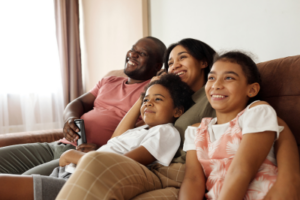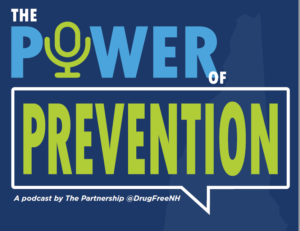We have all heard the adage “an ounce of prevention is worth a pound of cure.” It’s so true, isn’t it? There are so many issues today that are jeopardizing the health and well-being of individuals around the globe. The spread of disease, food insecurity, substance use disorder, marked increase in mental health issues, bullying, gun violence, and many of the issues that contribute to individuals experiencing homelessness are all preventable through science-based strategies, funding, and community and political action.
This is National Public Health Week, and today’s theme is recognizing the importance that mental health plays in the overall health of all individuals. Mental health continuously impacts how we think, feel and act. It also plays an important role in our physical and social well-being. Millions of Americans are affected by mental illness, and anxiety disorders, bipolar disorders, and depression are some of the most common. Mental health issues and substance use can be related to each other for some people, in some cases, one may cause the other. Prevention and early intervention strategies can reduce the impact of substance use and mental disorders in America’s communities (SAMHSA, 2023).
 We know isolation contributes to both mental health and substance use. According to the American Public Health Association, cases of mental illness have recently risen in adults and children due to the COVID-19 pandemic. Rates of anxiety, depression, and substance use disorder have increased, particularly for communities of color.
We know isolation contributes to both mental health and substance use. According to the American Public Health Association, cases of mental illness have recently risen in adults and children due to the COVID-19 pandemic. Rates of anxiety, depression, and substance use disorder have increased, particularly for communities of color.
Being connected to family, friends, and community members is positive for mental health and substance use prevention.
The Power of Prevention Podcast has focused on the importance of mental health and substance use prevention in a number of its episodes. As we are drawing to the close of National Public Health Week, we would like to share some quotes from our guests and we invite you to listen to them in their entirety. At the conclusion of each episode, host Christin D’Ovidio asks each guest for their definition of prevention. Here are some of the powerful responses.
We have been fortunate to work with so many smart, capable, and outstanding prevention professionals throughout the state. We know their work is positively impacting Granite Staters from the south up to the northern border and from the seacoast to Vermont. These experts are making daily contributions to the public health of New Hampshire through their prevention efforts. Please join us in thanking them and celebrating their many accomplishments.
We also invite you to take the time to view a brief video, listen to The Power of Prevention Podcast, and read more posts from The Partnership Prevention Blog.
 The Power of Prevention Podcast series provides important information about the prevention of alcohol, tobacco, and other substances. Produced by The Partnership @drugFreeNH, each episode features some of the great work taking place in the Granite State in the prevention arena. The Power of Prevention Podcast series is available on Stitcher, Apple Podcasts, Spotify, and Google Podcast, or at The Partnership’s website. You can subscribe to the series wherever you listen.
The Power of Prevention Podcast series provides important information about the prevention of alcohol, tobacco, and other substances. Produced by The Partnership @drugFreeNH, each episode features some of the great work taking place in the Granite State in the prevention arena. The Power of Prevention Podcast series is available on Stitcher, Apple Podcasts, Spotify, and Google Podcast, or at The Partnership’s website. You can subscribe to the series wherever you listen.

